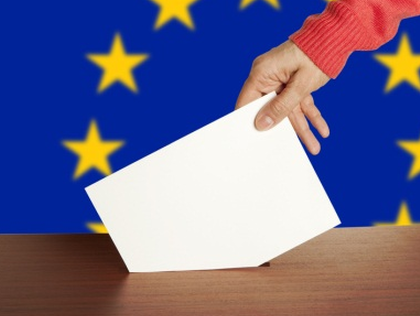
It is still tough to call the winner of the European Parliamentary Elections in the United Kingdom. Polling shows Labour ahead of UKIP by a few points, but rumour has it that UKIP’s campaign war chest is huge, and that they will be spending to the very limits between now and May 22nd.
The Sunday Telegraph’s latest polling shows the Conservative Party on 22 points, Labour on 30, the Liberal Democrats on eight points, and UKIP on 27. But just four days earlier the Guardian/ICM poll told somewhat of a different story. Tories on 25, Labour 36, Liberal Democrat on six, and UKIP on 20.
Those two polls are really quite different, and the results will rely largely on turnout on the day, and even postal voting. If UKIP grabs 27 percent of the vote, they will end up with around 19 Members of the European Parliament. At just 20, they will only gain just five seats more than they currently have, at 14.
There is no shortage of people claiming that UKIP will pip Labour to the post on May 22nd. Analyst Peter Kellner wrote in his February 2014 article entitled, ‘How UKIP Will Win‘:
“When people are asked their general election voting intention, Ukip wins a steady 12 per cent vote share. When asked about the coming European parliament elections, Ukip’s share doubles. And that is before the campaign itself has begun: in 2004 and 2009 it gained substantially in the final weeks”.
And while Kellner is right about a polling day bounce for UKIP – especially with their emotive ad campaigns – the party has been stung before by Labour’s effective postal voting machine, which effectively renders several weeks of the campaign fruitless in some areas.
During the Wythenshawe and Sale by-election in February, UKIP leader Nigel Farage lashed out at Labour for what he called a ‘dirty tricks’ campaign to sow up the election using postal votes:
“You’re the little old dear at number 33. The postman delivers the ballot paper. Two minutes later, there’s a knock on the door. It’s the Labour canvasser. ‘Do you want some help with that? Can I take that from you?’ They’ve even got a barcoding system.”
So this will have to be factored in too. UKIP optimists might argue that their party can beat Labour out by one or two points. Being wholly realistic however, I’d probably say Labour will stitch it up on the postal votes. Mike Smithson notes at PoliticalBetting:
“The manner in which the [postal vote] pilot schemes were carried out attracted a lot of criticism. Tens of thousands of ballot papers were reported to have going astray, printers were unable to cope, and there were many allegations of fraud. In some council areas in the regions concerned ballot boxes were reintroduced late at libraries as “collection points” for postal forms.
“All postal voting in a national election has not been repeated but the newer rules making this a lot easier are in place and on May 22nd I’d expect to see about quarter of votes cast to be in this manner.”
So that’s a quarter of votes decided before polls even open on May 22nd, and it is safe to say that given UKIP’s recent bemusement at the process, the majority aren’t going to Nigel Farage’s party.
Inevitably, the Conservatives will come third in May, dropping their number of MEPs from 27 to between 16 and 20. The Liberal Democrats face the possibility of a complete wipeout, with bookmakers now even slashing the odds on whether Nick Clegg’s party will land a single MEP.
This is a disaster situation for Clegg, and should in reality herald his resignation as Lib Dem party leader. The problem for his party is that he is still Deputy Prime Minister in a coalition government, and if they ditch him as party leader, it effectively nullifies Britain’s coalition agreement, and gives the Conservatives in government a chance to call an early election, or run roughshod over their coalition colleagues in disarray.
The Scottish National Party is likely to pick up one of these seats from the Lib Dems, and the British National Party will likely lose its place too. For a look at the smaller parties, check out Nick Hallett’s analysis here.
I’m inclined to side with ComRes’s Andrew Hawkins who recently said “Whether it’s Ukip or Labour, it’s too close to call”… and I don’t think the situation is going to get any clearer until May 25th, when the votes have all been counted.

COMMENTS
Please let us know if you're having issues with commenting.